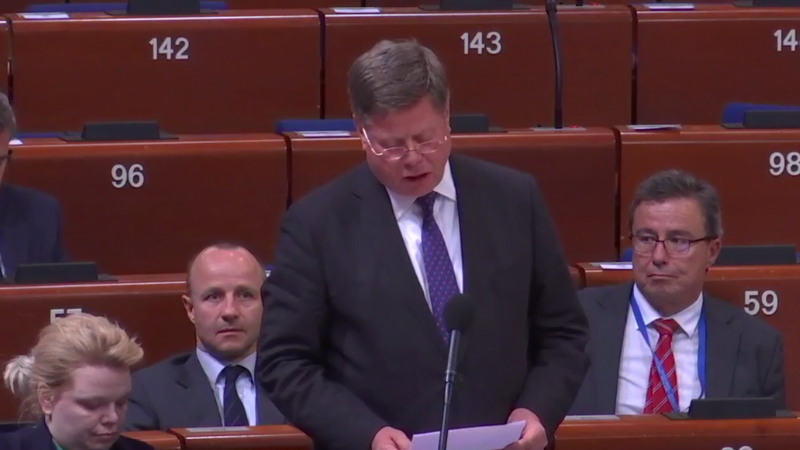Council of Europe’s parliamentary assembly (PACE) has called on member states to set up a Europol Joint Investigation Team (JIT) that will investigate money laundering networks across borders.
PACE has expressed its deep concern at the extent of money laundering in Council of Europe member states, notably the recent examples known as the “Global Laundromat”, the “Azerbaijani Laundromat” and the “Troika Laundromat”, and has urged improved national mechanisms and international co-operation to fight it.
The Global Laundromat involved corrupt Moldovan judges, the parliamentarians said, while the Troika Laundromat involved people close to the heart of State power and the Azerbaijani Laundromat contributed to corruption within the Parliamentary Assembly itself. None has been adequately investigated by national authorities.
The Shift News has been threatened with a SLAPP lawsuit for reporting the findings by OCCRP on Ruben Vardanyan, based on a leak of 1.3 million bank transactions that showed how some US$ 5 billion of Russian money was moved into Europe and beyond.
In a resolution based on a report by Mart van de Ven (Netherlands, ALDE), the Assembly said these “laundromats” involved large sums of money from wealthy businessmen, organised criminals and high officials.
They exploited various weaknesses across multiple jurisdictions, including shell companies, often based in the United Kingdom or its Overseas Territories, and poorly regulated banks, notably in the Baltics.
All scandals revealed corruption at the heart of power. “This may look like a report on dry, technical issues but in reality it is about our fundamental values. It is about how to protect the rule of law, human rights and democracy against dangerous, destructive forces. Forces that have already damaged even this assembly, the institutional home of European democracy,” the Council of Europe’s Rapporteur said.
Organised crime is a danger in its own right, but its also a corruptive force. Sooner or later, organised criminals with huge financial resources seek to influence public life through public offices. This too undermines democracy, van de Ven said.
“Corruption undermines people’s confidence in public bodies. Populists exploit this scepticism to attack democratic institutions. We are seeing this right now in a number of Council of Europe member states,” he added.
The closure of one bank – which Malta experienced with Pilatus Bank – does not mean the problem is solved, the Rapporteur said.
The Rapporteur stressed that corruption and organised crime depend on international money laundering: “Most are motivated by greed for money but the origin of that money must be concealed before it can be spent…without money laundering, it becomes more difficult to conceal organised crime and even more difficult to enjoy the spoils”.
The prevention of money laundering is one of the best ways to fight organised crime and corruption, which was the basis for the Rapporteur’s recommendation.
WATCH the video for a run down on how organised crime used power and banks in Europe to undermine democracy.













